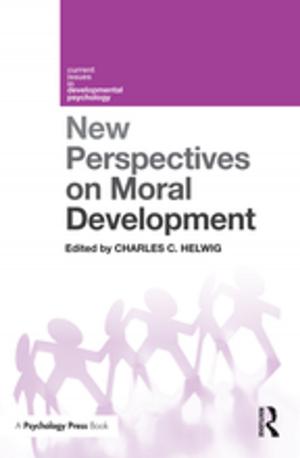Contextual Anger Regulation Therapy for the Treatment of Clinical Anger
A Mindfulness and Acceptance-Based Behavioral Approach
Nonfiction, Health & Well Being, Psychology, Psychotherapy, Mental Health| Author: | Frank L. Gardner, Zella E. Moore | ISBN: | 9781135262792 |
| Publisher: | Taylor and Francis | Publication: | July 24, 2013 |
| Imprint: | Routledge | Language: | English |
| Author: | Frank L. Gardner, Zella E. Moore |
| ISBN: | 9781135262792 |
| Publisher: | Taylor and Francis |
| Publication: | July 24, 2013 |
| Imprint: | Routledge |
| Language: | English |
Anger is a natural human emotion that can serve important survival functions, but the excessive presence of anger and its associated negative outcomes—such as aggression and violence—can lead to significant interpersonal, intrapersonal, occupational, legal, familial, societal, and physical health problems. Unfortunately, clinical anger clients haven’t historically been helped in truly sustainable ways, and loved ones and society at large are often left to simply watch as these individuals struggle to overcome their anger and the noxious behaviors that often emanate from this troubling condition.
Contextual Anger Regulation Therapy gives clinicians the power to change this. The book presents an exciting nine-module mindfulness and acceptance-based behavioral treatment program that has been effectively utilized in formal clinical settings with clinical anger clients, including those mandated for treatment following both non-domestic and domestic violence. Treatment success has not only been demonstrated in observable ways, including significant reductions in violence recidivism and marked improvements in quality of life; it has also been seen in scientific data both in the laboratory and with large numbers of mandated clinical anger clients.
Anger is a natural human emotion that can serve important survival functions, but the excessive presence of anger and its associated negative outcomes—such as aggression and violence—can lead to significant interpersonal, intrapersonal, occupational, legal, familial, societal, and physical health problems. Unfortunately, clinical anger clients haven’t historically been helped in truly sustainable ways, and loved ones and society at large are often left to simply watch as these individuals struggle to overcome their anger and the noxious behaviors that often emanate from this troubling condition.
Contextual Anger Regulation Therapy gives clinicians the power to change this. The book presents an exciting nine-module mindfulness and acceptance-based behavioral treatment program that has been effectively utilized in formal clinical settings with clinical anger clients, including those mandated for treatment following both non-domestic and domestic violence. Treatment success has not only been demonstrated in observable ways, including significant reductions in violence recidivism and marked improvements in quality of life; it has also been seen in scientific data both in the laboratory and with large numbers of mandated clinical anger clients.















